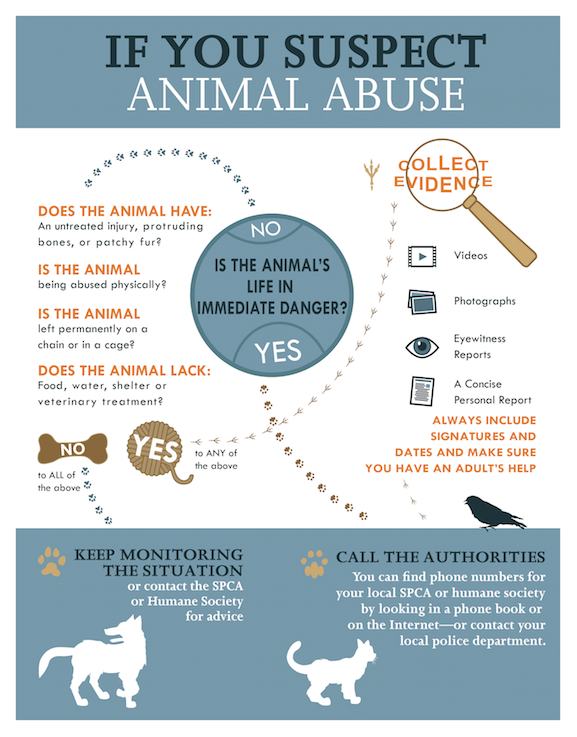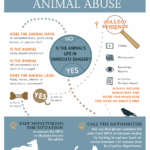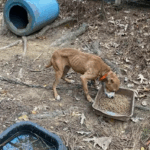Encountering acts of animal cruelty is an unsettling experience that can profoundly affect one’s emotional and psychological well-being. Just as a sailor might navigate tumultuous seas, those who witness such atrocities must find their way through the ensuing emotional storm. The anguish can feel pervasive, enveloping the mind and heart in a thick fog of despair. In the face of this distress, it becomes paramount to cultivate resilience and engage in practices that foster psychological self-care. Below is a comprehensive exploration of coping mechanisms that can provide solace and strength in such challenging times.
Recognizing the Emotional Toll
The first step in coping with the psychological ramifications of witnessing animal cruelty is to acknowledge the emotional toll it takes. Often, individuals experience feelings of anger, sadness, and helplessness. These emotions can whirl into a cacophony, overwhelming the psyche like raging winds disturbing the tranquility of a serene lake. Embracing these feelings is the first step towards healing. Consider them not as adversaries but as natural responses that signal a deep empathy for those who suffer. Understanding that these reactions are normal can help in alleviating any internal guilt for experiencing such distress.
Grounding Techniques for Emotional Distress
To prevent being swept away by the tide of overwhelming emotion, grounding techniques can serve as lifesavers. These practices call your attention back to the present moment, allowing you to regain a sense of stability. Simple exercises, such as breathing deeply and focusing on your immediate surroundings, can create a safe harbor amidst the storm of thoughts and feelings. Visualization exercises can also be effective. Picture yourself in a quiet, safe space surrounded by animals in joy, which can imbue a sense of peace and remind you of the happier realities that exist alongside the grief.
Engaging in Healthy Outlets
After a distressing experience, one of the most constructive paths to take is to engage in healthy outlets for expression. Writing can be a cathartic exercise, allowing you to articulate the emotions you’re grappling with. Journal your feelings, recount what you witnessed, and ponder over the deeper implications of animal cruelty. Let your words flow freely; the act of writing can serve as a release, transforming sorrow and anger into an empowering narrative. Alternatively, art in its many forms—painting, sculpture, or even music—can provide a powerful medium for expression, allowing creativity to blossom from anguish.
The Power of Connection
Isolation can intensify feelings of distress, much like a solitary island in an expansive ocean. Reaching out and connecting with others who share your passion for animal advocacy can mitigate these feelings. Seek support groups or online communities where you can discuss experiences, share insights, and foster a spirit of solidarity. Connecting with like-minded individuals can create a sense of belonging and reinforce the notion that you are not alone in your feelings or in your mission to combat animal cruelty. This collective support can act as a buoy, keeping you afloat during turbulent emotional waves.
Fostering Empathy through Advocacy
One effective way to cope with the negative emotions stemming from experiences with animal cruelty is to channel that energy into advocacy and action. Volunteering at shelters, organizing community awareness campaigns, or even educating others about animal welfare issues can transform pain into a catalyst for positive change. Such engagement not only empowers others but also serves to ameliorate the sense of helplessness that often accompanies these experiences. As you become a voice for the voiceless, the feeling of purpose can serve as a soothing balm for the heart.
Establishing Boundaries
It’s vital to establish emotional boundaries to protect oneself from the potentially overwhelming realities of animal cruelty. Just as a gardener prunes dead branches to nourish and focus energy on growth, setting limits on how much exposure you have to distressing content can nurture your mental health. Be mindful of media consumption; while awareness is crucial, constant exposure to graphic imagery and distressing news can lead to compassion fatigue. Curating your news sources or subscribing to positive, solution-focused updates can help in maintaining a balanced perspective.
Mindfulness and Meditation
In an age of constant noise, mindfulness and meditation serve as sanctuaries for the mind. Incorporating mindfulness practices into your daily routine can foster a sense of peace and centeredness. Spend moments in silence, noticing your breath, and allowing thoughts to come and go without judgment. This practice helps cultivate awareness of the present, reducing anxiety about the past or future. Additionally, consider dedicating time to meditative practices that invite a sense of compassion, both for the suffering animals and for yourself as you process these difficult emotions.
Seeking Professional Support
Lastly, it is important to recognize when professional assistance is warranted. A mental health professional can provide you with the necessary tools to navigate the emotional complexities associated with witnessing animal cruelty. Therapy offers a safe space to unpack feelings, develop coping strategies, and foster resilience. Whether through cognitive behavioral techniques or other therapeutic modalities, professional support can illuminate a path towards emotional recovery.
Witnessing animal cruelty can leave indelible marks on the psyche, making it essential to engage in practices that safeguard mental health. Through recognition of emotions, healthy expression, connection with allies, and advocacy, individuals can forge a path toward healing. As the sun breaks through the clouds after a tempest, so too can the spirit find reprieve amid the struggle for animal welfare. Embrace the journey, and remember that amidst the shadows, there lies the potential for light and positive change.








